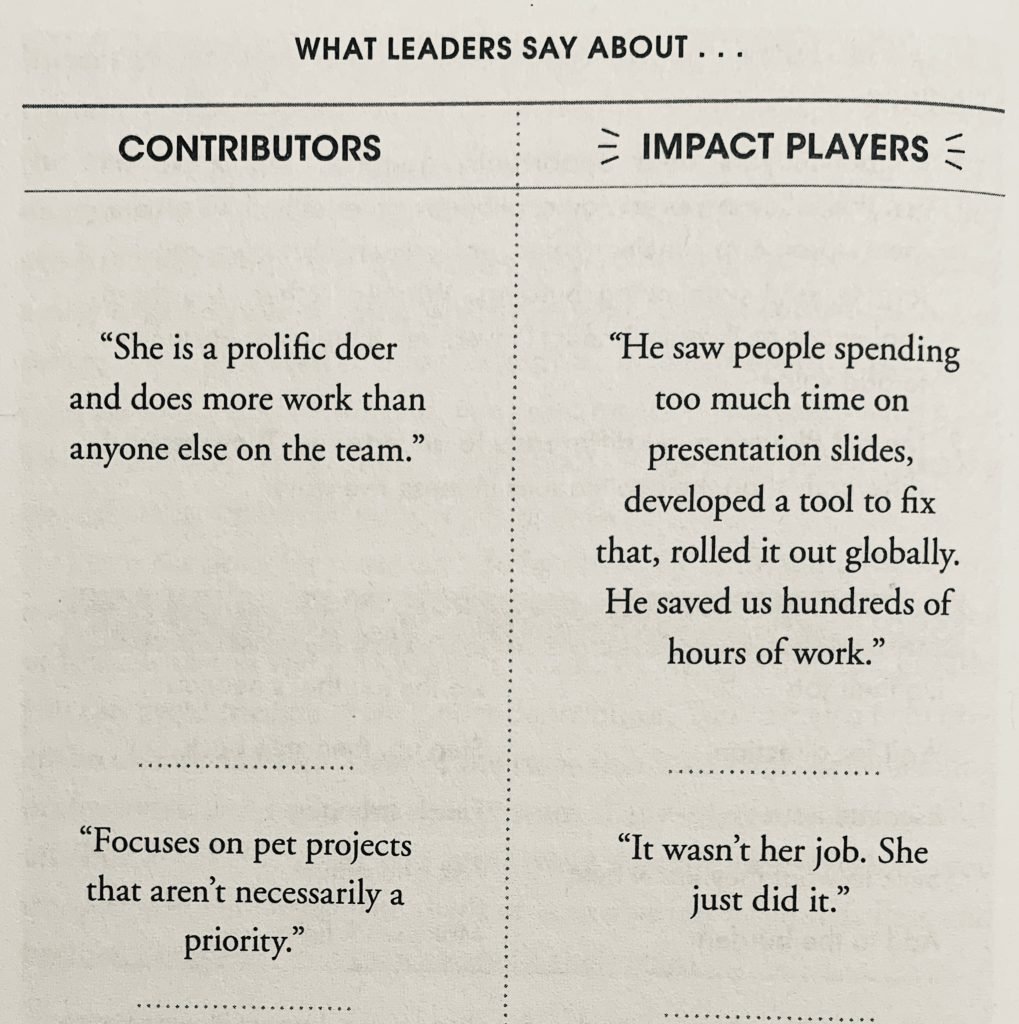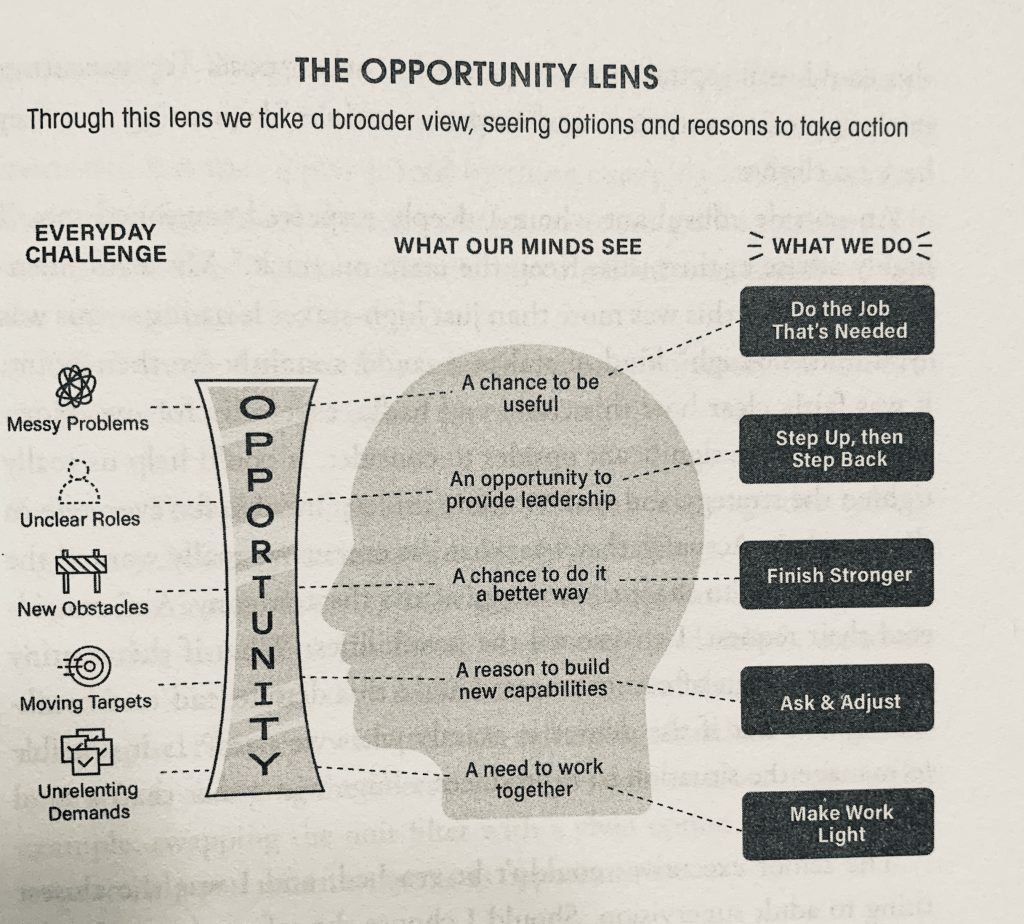
Tom Brady and LeBron James are recognized as superstars. Where they go, victories and championships follow. They aren’t just superstar performers for one team, they elevate every team they play on.
But the sports industry doesn’t have a monopoly on superstars, the world of business has them too. It’s just that we didn’t have a word for it until author, Liz Wiseman coined it — Impact Players.
In her new book, “Impact Players: How to Take the Lead, Play Bigger, and Multiply Your Impact“, shares her research and what she teaches her clients about how to recognize, encourage and create Impact Players in your business.
Who is Liz Wiseman?
Wiseman is the CEO of the Wiseman Group, leadership research, and development firm headquartered in Silicon Valley. She coined the term “Impact Players” based on decades of research and training leaders from Apple, AT&T, Disney, Facebook, Google, and more. She’s been listed on the Thinkers50 ranking and named one of the top 10 leadership thinkers in the world.
What is an Impact Player?
As with most things, it’s not what Impact Players have DONE that sets them apart, it’s about who they are. It’s not the degrees or even the years of experience that define impact players, it’s who they are being inside whatever challenge you put in front of them.
Here’s a quick comparison between good performers and Impact Players.
- While others do their job, Impact Players figure out the real job to be done.
- While others wait for direction, Impact Players step up and lead.
- While others escalate problems, Impact Players cross the finish line.
- While others avoid change, Impact Players adapt.
- While others add to the load, Impact Players make the load feel lighter.
Ahhh If Only It Were That Easy
I know what you’re thinking right now. “Sure, executives from big companies like Apple and Disney can wax intellectual about finding and nurturing Impact Players from their ‘cream of the crop’ employees. But in the sea of small business where my company is a canoe and their company is an aircraft carrier, what am I supposed to do with this?”
I got you and I’m going to show you how to extract the best parts from this book and apply them in your business.
If You Want Impact Players – You Need to BE an Impact Player
“Impact Players” was written for “aspiring leaders and striving professionals who want to be successful at work and make an impact.”
If you’re a small business owner or entrepreneur NOW is the time to read this. Why? Because if you want your business to live up to your dreams — you have to be the first Impact Player. And, if you put the principles in this book to use while your team is still small — you will attract impact players.
As a business owner and entrepreneur, you’ll get more benefit from this book if you see yourself as an Impact Player and your customer and clients as the managers.
You will gain profound insight into how leaders in larger organizations think and value. Just because Wiseman has written this using “managers” and “team members” as the main players, you can just as easily shift into a more entrepreneurial situation of your business and the client or customer.
How to Be an Impact Player
The book is written in two parts; Part One describes the impact player and Part Two provides a guideline to shifting your mindset to that of an Impact Player.
In Part One, Wiseman gets into the intricate details of her research which included interviews with 170 leaders from companies like Google, LinkedIn, Salesforce, and Target. She asked these managers to identify someone on their team who provided extraordinary value and someone typical.

If you’re a manager, you’ll learn to recognize Impact Players on your team. If you’re a business owner, you’ll get some insight into what a customer or client might think as they are choosing a vendor or consultant.
In Part Two, Wiseman addresses the core issue of becoming an Impact Player — changing your mindset.

The key elements of this section are all about shifting the lens through which you see the world. In other words, re-scripting the stories you tell yourself about what things mean.
For example, Impact Players were the businesses that looked at the pandemic as an opportunity, while other businesses looked at it as a threat. It’s a function of mindset.
What I Liked About Impact Players
We all know a great leader or a great employee when we see one. But there’s not been a documented and quantified model of specific mindset and performance attributes of the people who make a difference in the organization. This is something I really appreciated about the book.
I also liked the sprinkling of personal stories from the research interviews that Wiseman used to provide her guides to future Impact Players.
The book also has a terrific Appendix and Frequently Asked Questions section that serves as a guide for managers.
Impact Players is a Bottom-Up Fix to a Top-Down Problem
As I was reading this book, I couldn’t stop asking myself the question; when did Impact Players become an endangered species? Was there ever a time where being engaged, productive, and proud of your work was the norm?
In the days of full employment, generous pensions, and retiring after 50 years of service to one company, there was a psychological contract between the company and the employee; I will take care of you if you take care of me. This worked until corporations started paying more attention to how much employees cost instead of how much value they brought. That psychological contract doesn’t exist in the majority of organizations these days.
The Impact Players and the leaders featured in this book are working in insanely rare environments.
Let’s take Google, for example. Google is considered the #1 place to work in the world. Why? Because they’ve eliminated many of life’s stress and worry for their employees with: shuttles to and from work, free healthy meals, 18 weeks paid maternity leave, on-site childcare, and great pay. 84% of Google employees are highly satisfied with their job.
“Impact Players” strives to increase the population of Impact Players in companies. This makes sense in companies like Google that have an infrastructure that eliminates or reduces stress and worry for their employees. In other words, Google is trying to bring back the old psychological contract; if I take care of you, you’ll take care of me. And it’s working for Google and a handful of large organizations.
Unfortunately, until business owners and their employees at restaurants, small manufacturers, and service companies worry less about the survival, Impact Players will continue to be a rare breed.
Image: amazon
This article, “Are You An Impact Player?” was first published on Small Business Trends